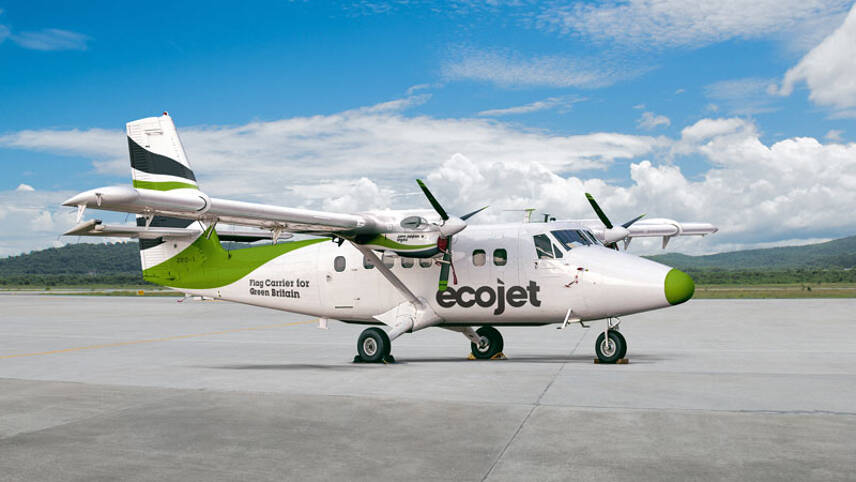Register for free and continue reading
Join our growing army of changemakers and get unlimited access to our premium content

Image: EcoTricity
Vince announced his intention to create ‘EcoJet’ today and is aiming to operate the first flights in 2024. He has described the airline as “a flag carrier for green Britain” that will prove the commercial viability of next-generation aircraft.
In the first instance, EcoJet will operate a route between Edinburgh and Southampton using 19-seater aircraft. It will then add additional routes between the UK and Europe by the end of 2026. EcoJet is in the process of applying for licences for take-off and landing slots.
EcoJet will operate aircraft that convert green hydrogen to electricity on-board. Green hydrogen is produced by running water through electrolysers powered exclusively by renewable electricity.
Given that 100% green hydrogen will not be available from Ecotricity at scale by the time EcoJet launches its first flights, the planes will use a hydrogen-kerosene blend initially. They will then be retrofitted and kerosene phased out, to timelines yet to be confirmed.
Vince told the Guardian that he wanted to launch quickly to “keep up the momentum”, even if fossil fuels needed to be used temporarily.
He explained: “It does feel like a contradiction but at the heart of this project is upcycling existing planes and retrofitting them. This is the pragmatic approach, which means we won’t lose time.”
SAF debate
In launching Ecojet, Vince is taking a stance against the UK Government’s approach to low-carbon aviation, which centres on efficiency improvements and the ever-increasing use of Sustainable Aviation Fuels (SAFs). This will partly be delivered using a mandate on fuel suppliers to British airports.
The UK Government’s Jet-Zero Strategy, developed in partnership with the aviation industry, sets a 2040 net-zero deadline for airport operations and domestic flights. The deadline is 2050 for international flights. It sets out that hydrogen and electric planes will likely only contribute to a minor portion of the emissions reductions needed to deliver these targets.
Vince has pointed out that SAF supply chains present a myriad of potential environmental challenges, including using productive land for fuel monocrops that would be better used to produce food and/or restore nature. Alternative fuel sources include waste, man-made carbon capture and other synthetic processes.
The UK Government is developing a standard to ensure that SAFs are low-carbon across their lifecycle. But it has yet to produce a comprehensive land use strategy, setting out the portion of land needed for alternative fuels compared to other uses (agriculture, energy production, nature conservation and restoration, housing and so on). This has been pledged by the end of 2023.
Apply now for the edie Net-Zero Awards
Readers interested in the above article may be keen to enter edie’s new Net-Zero Awards.
From breakthrough innovations and solutions through to industry-leading carbon reduction programmes and bold collaborative initiatives – this is THE awards scheme have your net-zero efforts and achievements recognised by thousands of businesses and climate experts.
The Net-Zero Awards have been launched as a sister scheme to the long-running edie Awards in response to the surge of innovation and corporate action to accelerate the net-zero transition. The Awards are open to all organisations across the public and private sectors and of all sizes from the largest multi-nationals to the smallest micro-businesses. Winning an inaugural Net-Zero Award empowers teams, inspires stakeholders and ultimately accelerates the corporate net-zero transition.
Applications are open until 21 July and awards will be presented on 15 November.
Click here for full information and to apply.


Please login or Register to leave a comment.